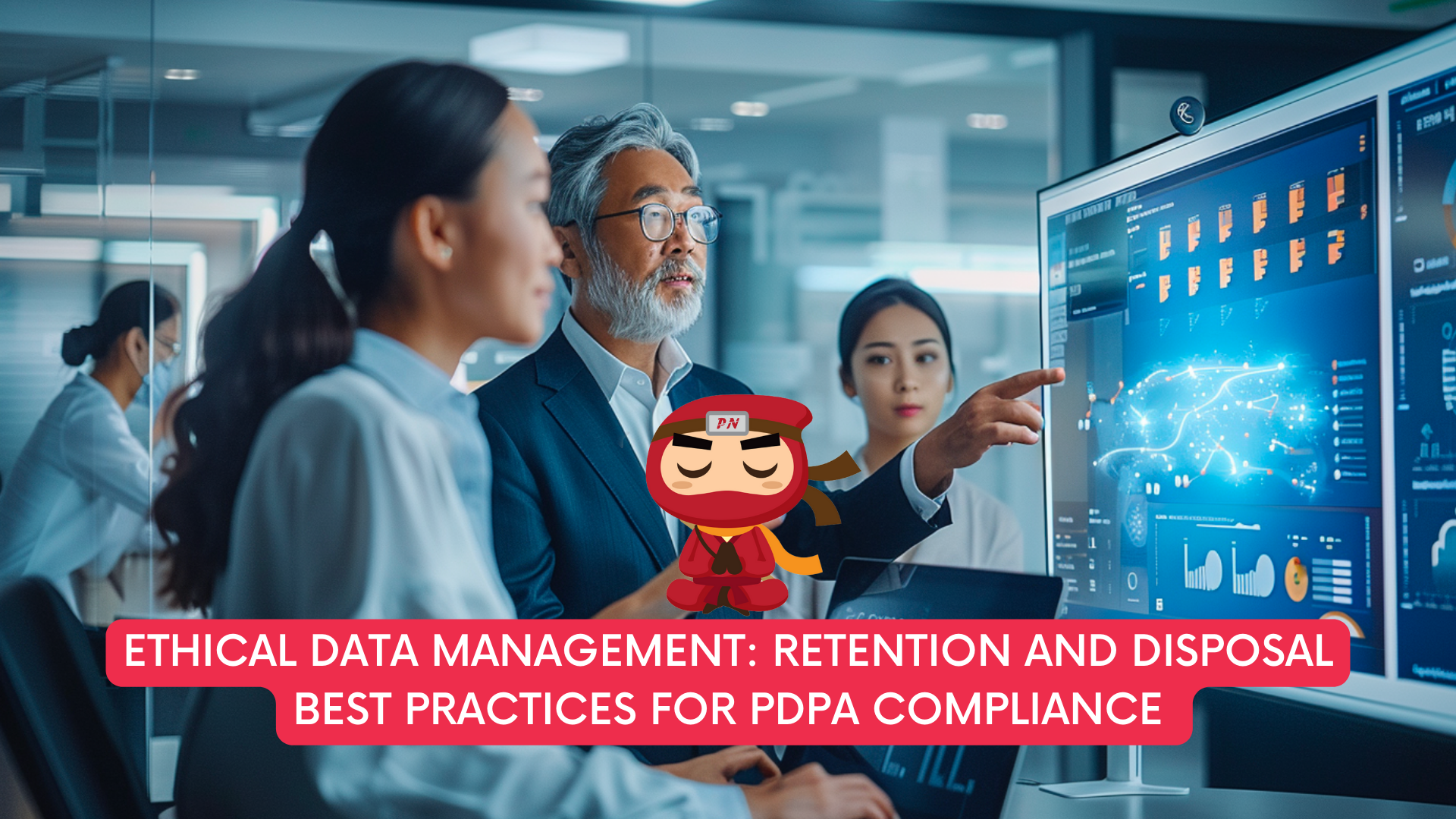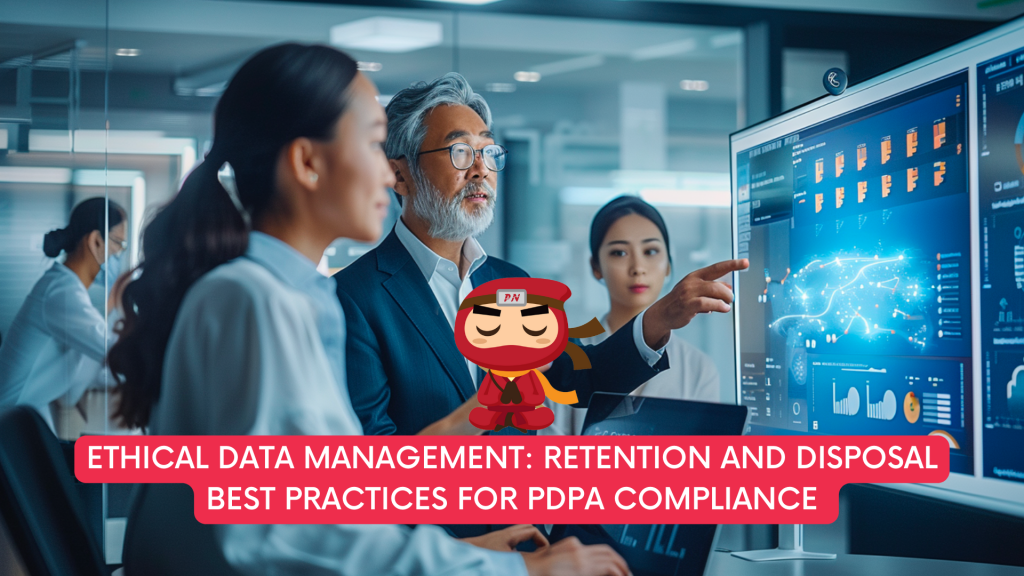KEEP IN TOUCH
Subscribe to our mailing list to get free tips on Data Protection and Cybersecurity updates weekly!







Personal data has become a valuable commodity, driving businesses’ decision-making processes and enhancing customer experiences. However, with the proliferation of data comes the responsibility to manage it ethically and in compliance with regulations such as the Personal Data Protection Act (PDPA).
Once the intended purpose for acquiring personal data has been fulfilled, proper retention and disposal become crucial aspects of ethical data management. Failure to adhere to these practices not only raises ethical concerns but also exposes organizations to legal liabilities.
Retaining personal data beyond its necessary period poses significant risks to individuals’ privacy and security. As data accumulates, so does the potential for unauthorized access, data breaches, and misuse.
Moreover, prolonged retention of data increases the likelihood of inaccuracies and outdated information, which can impact the quality of decision-making and undermine trust between businesses and their customers.
The PDPA imposes strict requirements on organizations regarding the collection, use, disclosure, and retention of personal data. One of its fundamental principles is the limitation of purpose, which stipulates that personal data should only be collected for specified, explicit, and legitimate purposes and not further processed in a manner incompatible with those purposes.
Therefore, once the intended purpose is fulfilled, organizations must ensure the timely disposal of personal data to comply with PDPA regulations.

To maintain compliance with the PDPA and uphold ethical standards, organizations should implement the following best practices for data retention:
Proper data disposal is equally essential to ethical data management and PDPA compliance. Organizations must implement secure and irreversible methods to dispose of personal data once it is no longer needed for its intended purpose.
To ensure the secure and ethical disposal of personal data, organizations should adhere to the following best practices:

Ethical data management requires organizations to prioritize the responsible retention and disposal of personal data in compliance with regulations such as the PDPA. By adhering to best practices for data retention and disposal, businesses can mitigate privacy risks, enhance trust with customers, and demonstrate their commitment to ethical conduct in the digital age. Embracing these principles not only ensures regulatory compliance but also reinforces the ethical foundation upon which organizations build their relationships with stakeholders.
Your appointed DPO can work with you on your PDPA compliance, ensuring that there will be policies in place to make sure that the handling of personal data is PDPA compliant.
A Data Protection Officer (DPO) oversees data protection responsibilities and ensures that organisations comply with the Personal Data Protection Act (PDPA). Furthermore, every Organisation’s DPO should be able to curb any instances of PDPA noncompliance as it is the officer responsible for maintaining the positive posture of an organisation’s cybersecurity.
DPOs complement organisations’ efforts to ensure that the organisation’s methods of collecting personal data comply with the PDPA. It also ensures that policies are set in place to make sure that there will be no instances of data breaches in the future.
Don’t wait any longer to ensure your organisation is PDPA compliant. Take our free 3-minute PDPA Compliance Self-audit checklist now, the same “secret weapon” used by our clients to keep them on track. Upon completion, we will send you the results so you can take the necessary action to protect your customers’ data. Complete the free assessment checklist today and take the first step towards protecting your customers’ personal data.